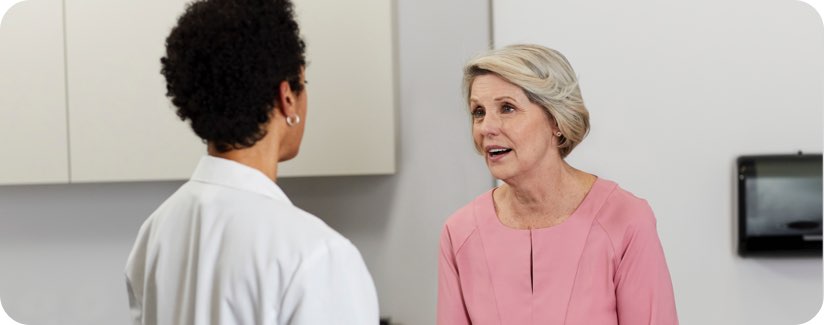How to tell if you’re getting the right primary care
As patients, we might see ourselves as passive recipients of healthcare, accepting whatever we’re given. But really, we’re healthcare consumers, which means we deserve—and can choose—better care. A great way to get better care is through your primary care provider (PCP).
According to Commonwealth Fund, “a strong foundation of primary care yields better health outcomes overall, greater equity in healthcare access and outcomes, and lower per capita costs.” PCPs connect the dots between your lifestyle, health and goals. This holistic approach enables them to keep you at the center of diagnoses and treatments. Ultimately, your PCP should put you on the path to achieving your best health and happiest life.
As vital as PCPs are, they differ in their quality and effectiveness. Here are questions to ask yourself about your PCP to tell if you’re getting the right primary care.

Is your PCP personal?
On the surface, healthcare appears personal because it’s about our bodies. Yet, too often, we can feel more like a specimen or a number rather than a person. A great PCP prioritizes learning about you, your unique story and your lifestyle. They will understand not only your medical history but also your personal history to connect the dots between the 2. They will understand your health goals such as maintaining autonomy, improving balance or lowering cholesterol through diet. They will respect you and your decisions.
Does your PCP listen?
Does your doctor let you speak or do they interrupt you? As cardiologist Dr. Vikas Saini said, “Listening promotes healing and causes no harm. In fact, it’s the bedrock of a genuine trusting relationship—something everyone wants from their doctors and nurses.” A survey from Everyday Health found that patients most value soft skills like listening and compassion.
Does your PCP give you quality and quantity time?
Many of us have come to expect healthcare to be a waiting game: wait to get an appointment, wait in the lobby, wait some more in the exam room. If you have a lower income, waiting can disproportionately affect you. A report by Merritt Hawkins found that the average wait time for an appointment was 26 days in 2022.
After such a long time waiting, the actual time spent with your PCP can feel anticlimactic and rushed. A recent report from Commonwealth Fund found that almost half of American doctors spend less than 15 minutes with their patients.
But long waits and short consultations don’t have to be the norm. In fact, many PCPs focus on minimizing wait times before and during appointments. They manage smaller caseloads so they can dedicate more time to individual patients and truly get to know them and their health concerns.

Is your PCP focused on your needs?
Since PCPs are healthcare generalists, not all focus on seniors or those with disabilities and their specific needs. PCPs who are not focused on seniors may not be aware of their implicit biases about aging. It’s been shown that ageism in healthcare can result in under-treating patients for treatable conditions or over-treating patients with too many procedures or medications.
In addition, general PCPs might not have facilities designed for older adults or those who have disabilities with modifications like lower exam chairs, wider hallways and doorways, non-slip floors and handrails. Features like these allow for easier mobility and increased independence. Senior-focused PCPs are more likely to put you at the center of their care through compassionate, respectful and thoughtful design.
Is your PCP tech friendly?
Technology is changing nearly every facet of healthcare, from online appointments to remote monitoring. Whether your PCP offers online scheduling or virtual visits, the technology should be intuitive and easy to use. Just like a PCP’s physical office design, you as the patient should be at the center of the PCP’s technology and not the other way around.
Does it offer additional services?
A great PCP might also offer additional services like onsite lab work for added convenience and efficiencies. They may offer coordinated care with a health coach and/or behavioral health specialist because health is more than going to the doctor; it’s the sum of all those small choices that add up every day like eating healthier, staying active and connecting with friends and family.
Think you need a new PCP?
It’s time you got the kind of primary care you deserve. Discover more at Our Care page.

More personalized care starts with one person: your Humana Sales Agent.
Humana will connect you with a licensed sales agent in your community.
And they will help connect you with primary care that’s right for you.




